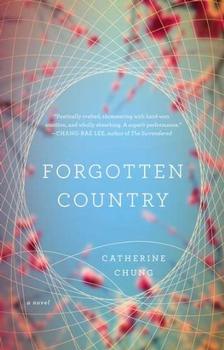Summary | Excerpt | Reading Guide | Reviews | Beyond the Book | Readalikes | Genres & Themes | Author Bio

1.
The year that Hannah disappeared, the first frost came early,
killing everything in the garden. It took the cantaloupe and the
tomatoes; the leaves of lettuce turned brittle and snapped. Even
the kale withered and died. In front, the wine-colored roses froze,
powdered gray with the cold, like silk flowers in an attic covered
with dust. My father and I had planted the garden over several
weekends, and tended it carefully. Then it had overgrown itself,
the tomatoes winding themselves up the wall of our house and
stretching out to span the distance to the fence. After the frost
we'd left it all winter without trimming anything back. Now we
stood on the lawn, surveying the ruin, tracking damp patches of
ground wherever we stepped.
"We're selling the house," my father said, blowing warm air on
his hands.
"That makes sense," I said, but it felt suddenly difficult to breathe.
My parents had told me they were going back to Korea, so I'd known
selling our house was a possibility, but I hadn't expected it.
"We're going to have to clean this up," my father said, gesturing
at the garden.
"It's cold," I said. "Let's go inside."
He nodded. The tendons in his neck were taut. His breath
steamed slowly around his face. Everything was inside out, or at
least the cold had turned the insides of things visible. The green
tomatoes were now gray and translucent, their skins puckered at
the stems, still hanging from their frozen vines. "We want you to
find Hannah," he said.
"When are you leaving?" I asked.
"As soon as possible," my father said.
"I want to go with you."
My father shook his head. "Find your sister," he said. He had
blamed me after the initial panic, when we discovered that Hannah
hadn't been abducted or killed, but had simply left without
telling us, without leaving us a way to contact her. I was her older
sister, living in the same city. He thought I should have seen it
coming.
When I moved back home for the summer, my father grilled
me about her. He wanted to know everything about the months
prior to her departure: what she had looked like, what she had said.
What I had noticed: why I hadn't noticed more. He was already
sick then, but didn't know it yet. I wonder if Hannah would have
been able to pick up and leave like that if she had known.
Inside, we made tea and sat at our kitchen table, waiting for my
mother to come down. My father's hands relaxed on the table,
his fingers eased into a slight curl around his mug. They looked
fragile against the smooth blue ceramic, his veins raised thick and
soft. For a moment I wanted to cover his hands with mine, even
though they had always looked like that.
Growing up, Hannah and I worried we'd inherit those veins,
huge and tinged blue. It was true that my father's body had pulled
into itself in the last couple of years so that his bones protruded,
but his eyes were still sharp and discerning, and his hands were the
same hands that had built this table, the same hands that refused
to let anything go.
"I want to go with you when you go to Korea," I said.
My father grimaced. "It's more important that you find Hannah.
You need to bring her home."
"I can't do that."
"She's your only sister."
"She's a brat."
My mother's footsteps sounded down the stairs, and together
we looked toward the hallway. My father tilted his head and called
out, "We're in the kitchen!" He leaned forward and took my hand
in his. It was warm. He whispered, "Don't upset her."
One word about Hannah was enough to make my mother dissolve
into tears for at least an hour. "Dissolve" was not too strong
a word. When my mother wept, the whole world vanished. My
father and I ceased to exist, and even Hannah's shadowy figure
was obscured. This could happen anywhere, at any time - even
in public. At first I wondered how my mother could sustain such
anxiety, how one body could hold it all. Then I realized it was a
question of density.
Excerpted from Forgotten Country by Catherine Chung. Copyright © 2012 by Catherine Chung. Excerpted by permission of Riverhead Books. All rights reserved. No part of this excerpt may be reproduced or reprinted without permission in writing from the publisher.




Censorship, like charity, should begin at home: but unlike charity, it should end there.
Click Here to find out who said this, as well as discovering other famous literary quotes!
Your guide toexceptional books
BookBrowse seeks out and recommends the best in contemporary fiction and nonfiction—books that not only engage and entertain but also deepen our understanding of ourselves and the world around us.